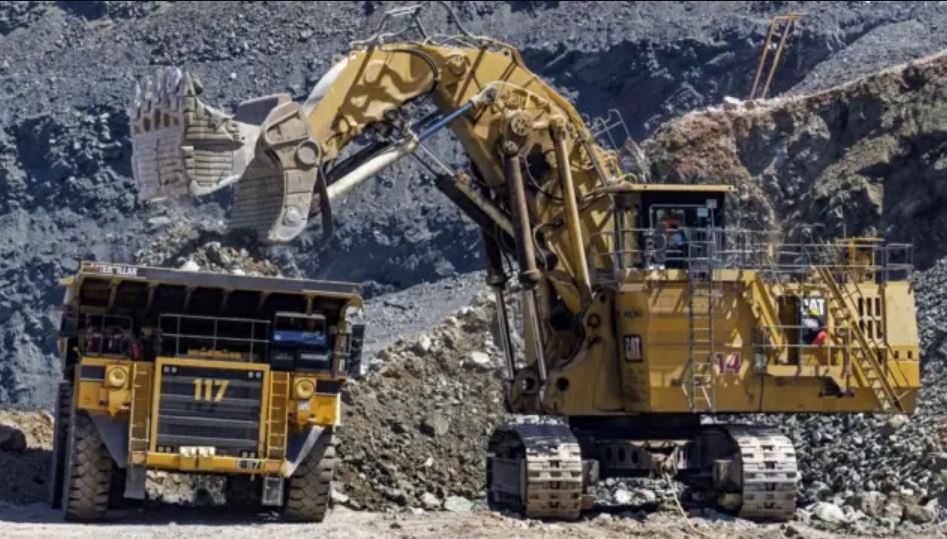Preliminary Reflections On TheDraft Mineral Legislation
Latest updates
Written by Rafiullah Kakar
Recent developments indicate that draft mineral legislation has been prepared under the supervision of the Special Investment Facilitation Council (SIFC) and shared with provincial governments. The Government of Balochistan has already enacted its version of the legislation—now a formal Act—as of March 2025, with minor amendments. Meanwhile, the Government of Khyber Pakhtunkhwa (KP) is still in the process of reviewing the draft Bill. Does the Bill Undermine Provincial Autonomy? It is important to begin by reaffirming that provinces have historically held constitutional jurisdiction over mineral resources—excluding those related to nuclear energy—even prior to the 18th Constitutional Amendment. What the Amendment did, notably, was to expand provincial ownership to include joint and equal control over oil and gas. The claim that the KP Government has relinquished its authority over minerals appears overstated. While the Bill does contain several concerning provisions, these do not, in their current form, represent a substantive ceding of provincial control to the federal government. Ironically, the Balochistan Act, already passed by the provincial assembly, appears to pose more serious risks to provincial autonomy. Several of its provisions, if interpreted liberally, could indeed be construed as a significant surrender of authority to federal authorities. Key Issues in the KP Bill and the Balochistan Act Both documents are extensive legislative frameworks aiming to regulate the entire mining value chain. Given their breadth, this brief note limits itself to evaluating the most contentious clauses—those bearing on the division of authority between federal and provincial governments. In the KP Bill, the key issues include: * The role of the Federal Mineral Wing, which is authorized to provide recommendations on a wide range of matters pertaining to mineral value chain management and development and financial matters such as royalties. However, these recommendations are explicitly non-binding, and decision-making authority remains vested in the provincial government. Nevertheless, the inclusion of such provisions—even if redundant—could be susceptible to future political misuse. Their deletion may help pre-empt ambiguity or federal overreach. * The Bill allows temporary permits to be granted for projects deemed of “national interest” to both provincial departments and “public organizations”—a term that includes federally owned state enterprises. This opens the door to potential misuse and undermines the spirit of provincial ownership. In the Balochistan Act, federal involvement is more explicit and problematic: * The Act assigns a proactive role to the Federal Mineral Wing, including authority to make recommendations on critical financial matters such as royalty estimation and sectoral development. While these recommendations are not binding, Balochistan has, in effect, relinquished its right to originate such proposals, relegating itself to a review function. This approach is constitutionally questionable and prone to future exploitation. Both Acts introduce the formation of Provincial Mineral Authorities and District Committees, transferring powers previously concentrated in the offices of provincial Secretaries, Directors General, and District Commissioners. This decentralization is a step forward. However, the inclusion of two federal representatives with voting rights in these bodies raises concerns. These members could be designated as observers instead, to preserve the provincial authority. Equity and Inclusion Concerns The Acts set higher capital investment thresholds for small-scale mining—PKR 10 million in Balochistan and PKR 25 million in KP. While this move is intended to discourage idle licenses and promote genuine exploration, it may also crowd out local, often marginalized, stakeholders and invite speculative licenses from wealthier actors with limited ties to the region. Moreover, there is negligible representation of local communities, mining associations, and private sector experts in governance structures. The exclusion of these groups undermines both effectiveness and legitimacy. Provincial bureaucracies and political actors lack the technical and operational capacity to govern the sector independently. A more participatory governance model—one that includes community leaders and technical experts—is essential. Both Acts contain vague, non-enforceable clauses on community benefit and employment preference. Without concrete implementation mechanisms, these provisions are unlikely to yield meaningful outcomes. Explicit, legally binding frameworks are needed to ensure community participation, benefit-sharing, and ownership in mining projects. What are the most pressing concerns? The most serious concern lies not in the substance of the Bills themselves, but in the non-transparent and extra-constitutional process through which they are being developed. The SIFC—an entity with no constitutional status—is leading this effort, casting a shadow over the legitimacy of the entire legislative exercise. In case of Balochistan, some of the content of the Act is seriously problematic. This top-down approach is especially problematic in a context where political legitimacy is contested and institutional credibility is fragile. Any mining agreements reached under opaque conditions risk deepening community distrust and triggering backlash—even if those agreements are technically sound. Mining is a long-horizon investment sector requiring social license and political stability. In contrast, Pakistan’s current political class operates on extremely short-term time horizons, increasing the risk of rent-seeking and environmentally destructive decisions. Past experiences, including Reko Diq and Independent Power Producer (IPP) contracts, underscore the dangers of hurried, opaque negotiations. On a technical level, Pakistan lacks the institutional capacity, technology, and financial depth needed to negotiate and monitor complex mining contracts that ensure fair and equitable returns for the state, investors, and communities. Therefore, any mining agreements negotiated under current circumstances are likely to prefer short-term interests over long-term interests. Given political instability, I would not be surprised if future governments try to cancel some of these agreements. Finally, community benefit-sharing frameworks have consistently failed. Beyond tokenistic Corporate Social Responsibility (CSR) efforts, few mining projects have delivered tangible benefits or ownership opportunities to affected communities. The current Bills perpetuate this pattern. A paradigm shift is urgently needed—one that centers local voices, ensures direct benefit-sharing, and builds mechanisms for long-term community participation.

Comments are closed, but trackbacks and pingbacks are open.